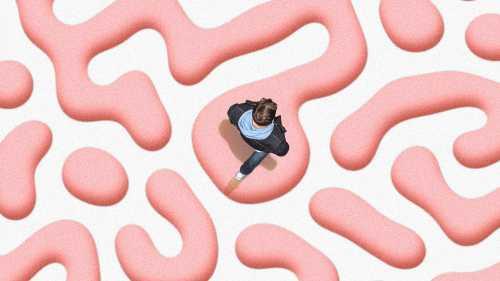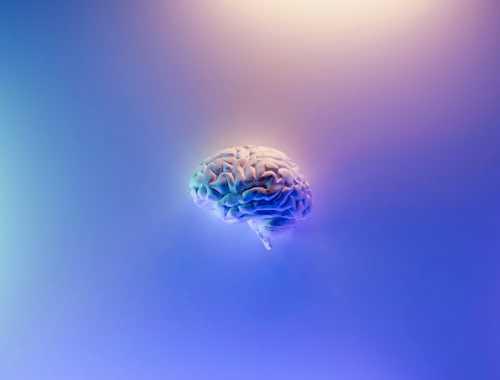Your Brain Doesn't Work the Way You Think It Does
Curated from: gq.com
Ideas, facts & insights covering these topics:
10 ideas
·15.6K reads
192
4
Explore the World's Best Ideas
Join today and uncover 100+ curated journeys from 50+ topics. Unlock access to our mobile app with extensive features.
Your brain predicts your experiences
Your daily experiences is a carefully controlled illusion constructed by your brain. The hallucination creates all your experiences and guides your actions.
This is the way your brain gives meaning to the sensory inputs of your body and the world. You are not reacting to experience, but your brain is constantly making predictions about what will happen and acting on it.
447
4.09K reads
How emotions are made
We assume outside events cause our anger or anxiety. But emotions are made by your brain as you need them.
This means the more you know and understand emotions, the more you can influence how your brain will construct them.
437
2.08K reads
The brain is not for thinking
The brain's most important job is not thinking or feeling.
It is to keep you alive and healthy. Every thought you have, or emotion you feel, or action you take is to support your body. Your brain's job is then to anticipate the needs of your body en meet it before it arrives.
419
1.67K reads
The brain is a prediction machine
Instead of passively observing reality, your brain is predicting your reality. What will I do in the next moment? How did I act the last time I was in this situation?
Predicting and correcting is far more efficient than only reacting. So, your brain is making informed guesses about what is going to happen next to reduce uncertainty. It is continually drawing on past experiences to create your present.
432
1.37K reads
We are more responsible than we think
You are more responsible for your actions than you think. This is because you're the only person who can change the way things are.
The actions your brain takes today will become your brains' predictions tomorrow. So making an effort to cultivate new experiences today and learning new things is an investment in who you will be tomorrow.
441
1.36K reads
How reality is created in our brains
What we experience as reality is a combination of the world inside our bodies and what is going on in the world outside. For example, a person can see a gun where there is no gun. If a soldier's heart is racing and has trouble inspecting the visual input, his brain might predict that a person is holding a gun even if it really is a stick.
Our brain's predictions come not only from past experiences but also from the news and social media. They come from what the world is curating for you.
407
1.09K reads
Understanding anxious, stressed feelings
The brains' most important job is to control the systems of your body in an efficient way. Your energy efficiency is like a budget that consists of resources like water, salt, and glucose. Every time your brain has to learn something new, it has to withdraw from the budget.
Stress is when your brain withdraws from your body budget. In a good stress situation, you will make a deposit again. In chronic stress, your brain keeps spending your budget, but you don't have sufficient deposits.
412
1.03K reads
The importance of making sufficient deposits
When the body is running a deficit from chronic stress, the body stops spending. It means you stop moving your body, and you stop learning. You're not sleeping enough because of all the worries.
If you don't make deposits, such as enough sleep, healthy eating, giving and getting support etc., you will eventually get to a place where you are bodily bankrupt.
423
1.03K reads
Emotional granularity
Emotional granularity is the ability to put emotion into words.
Emotion is an event where your brain uses your current knowledge about your feelings to make sense of the changes in your body (increased heart rate, heavy breathing, etc.). It connects the sense data and the feelings you have with what is going on around you. For example, tightness in the chest is experienced as anxiety or determination.
The more concepts you know, the better you are able to construct your emotions more precisely to fit the situation you are in.
416
909 reads
Understanding your mood
If you are running a body budget deficit, you may feel lousy. But if you're not a very granular person, feelings of anger, sadness, fear all mean the same thing to you. In this case, your brain might struggle to know how to deal with the situation. Do you have a drink of water? Do you go for a run? Do you tell someone?
However, if your brain has learned that sadness means you have lost something you care for, whereas disappointment means your expectations turned up empty, it will lead to very specific actions.
422
1.02K reads
IDEAS CURATED BY
Vanilla Eyes's ideas are part of this journey:
Learn more about personaldevelopment with this collection
How to start a successful business
How to build a strong team
How to market your business
Related collections
Similar ideas
5 ideas
8 ideas
7 (and a half) myths about your brain
sciencefocus.com
Read & Learn
20x Faster
without
deepstash
with
deepstash
with
deepstash
Personalized microlearning
—
100+ Learning Journeys
—
Access to 200,000+ ideas
—
Access to the mobile app
—
Unlimited idea saving
—
—
Unlimited history
—
—
Unlimited listening to ideas
—
—
Downloading & offline access
—
—
Supercharge your mind with one idea per day
Enter your email and spend 1 minute every day to learn something new.
I agree to receive email updates

